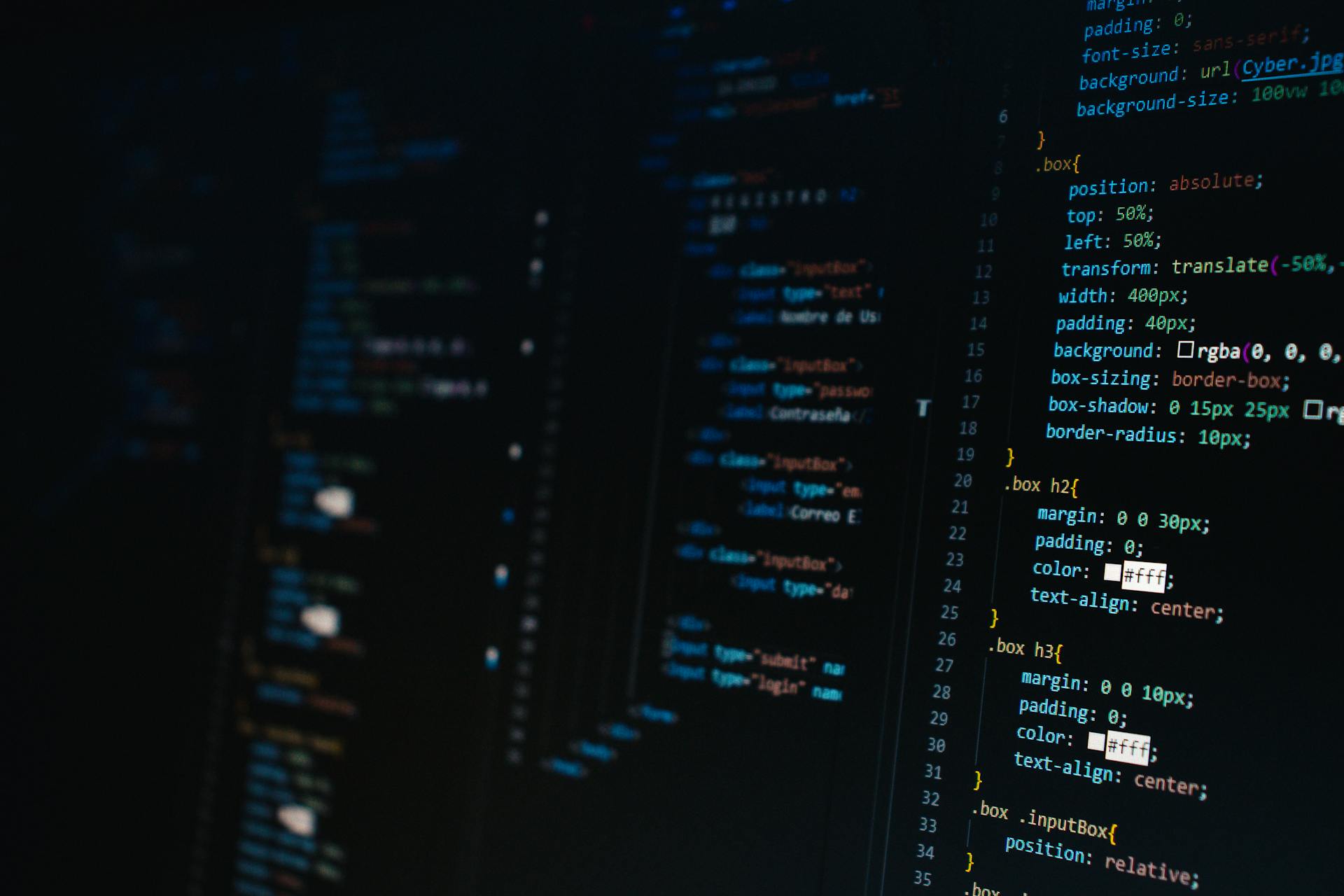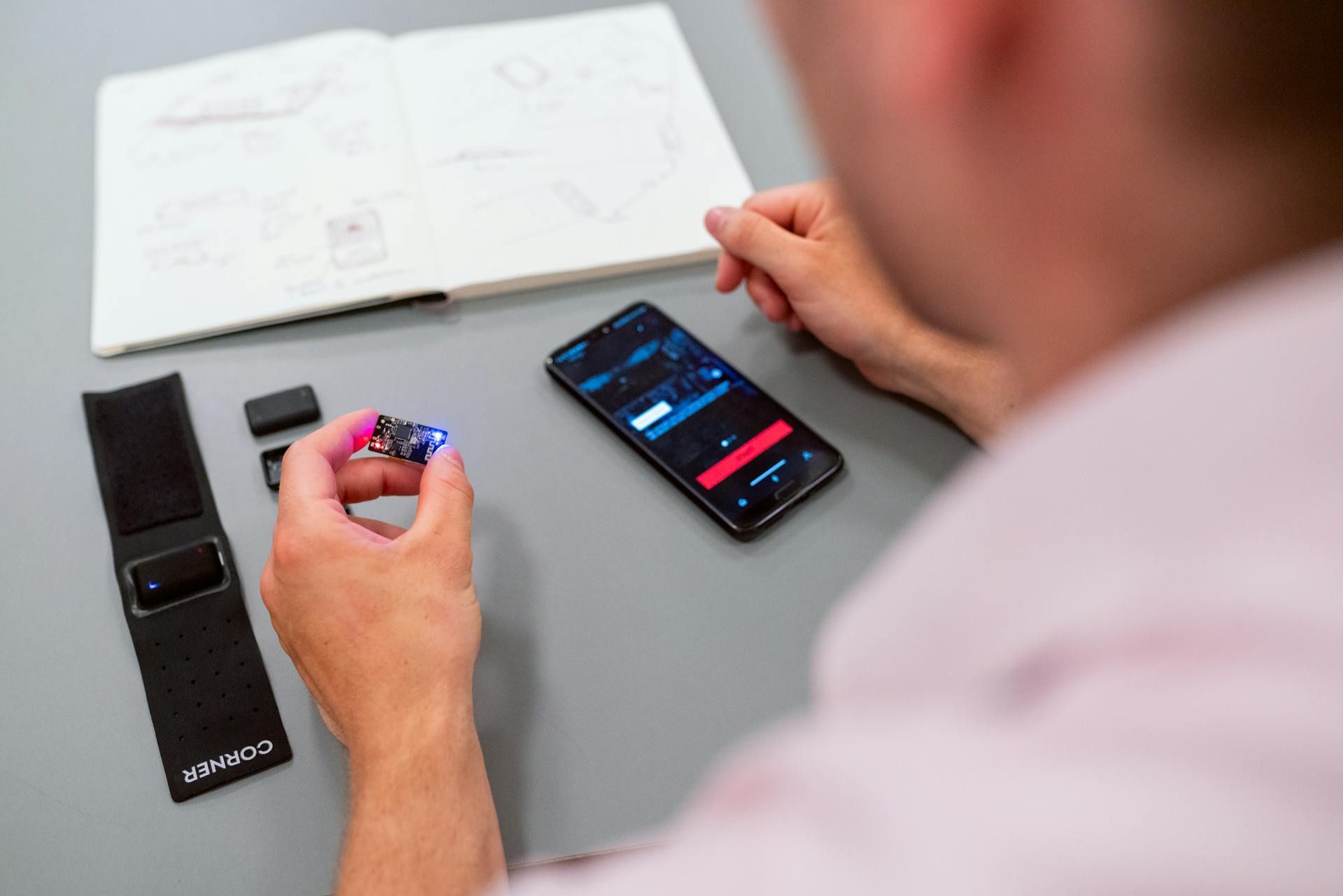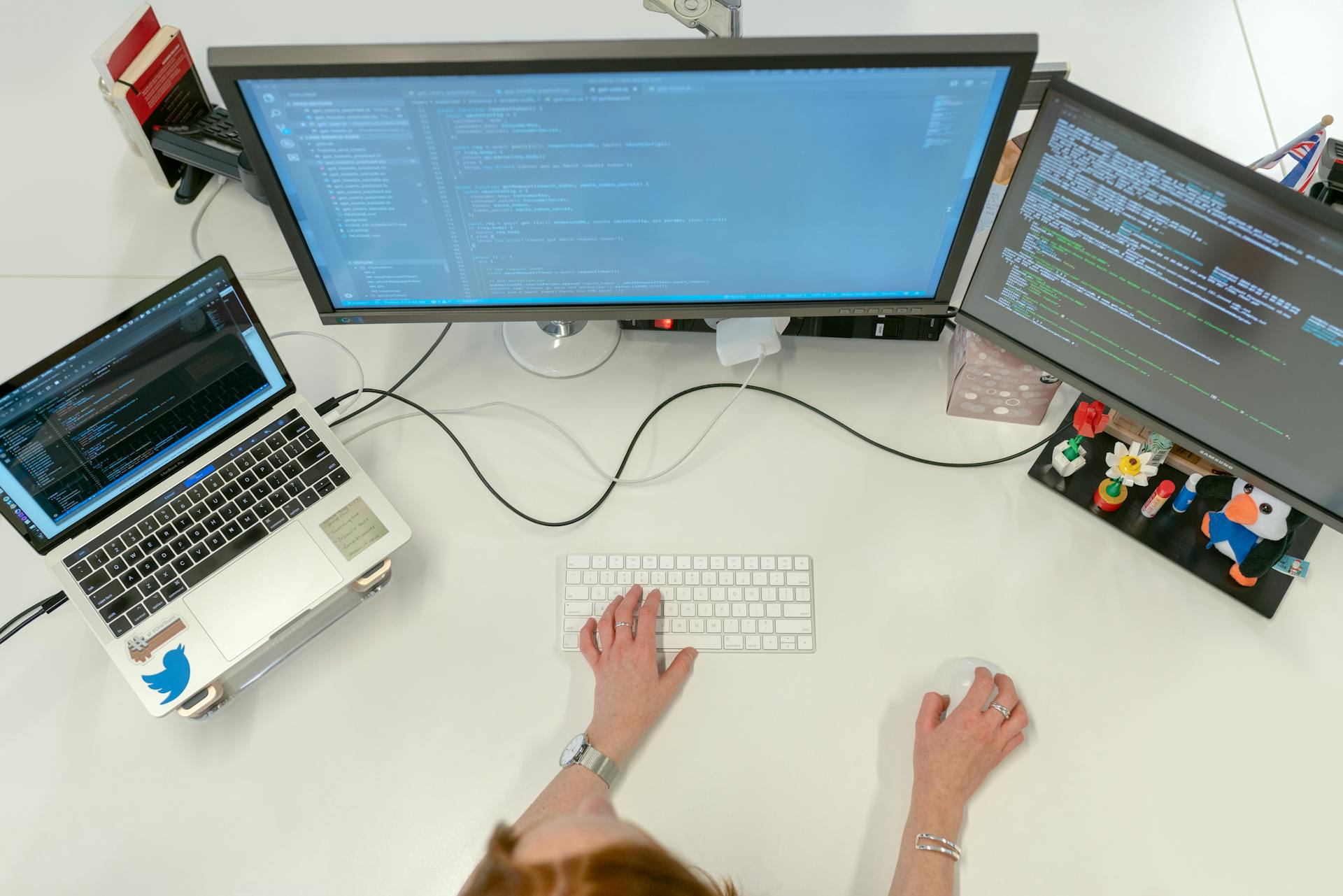
If you're looking to break into the medical coding field, there are many excellent online schools to consider.
The American Health Information Management Association (AHIMA) offers a comprehensive list of online programs that are accredited by the Commission on Accreditation for Health Informatics and Information Management Education (CAHIIM).
These programs typically take 12-18 months to complete and require a combination of classroom instruction and hands-on experience.
Some online medical coding schools also offer specializations in areas such as medical billing, health information management, and electronic health records.
Online Medical Coding Schools
Online medical coding schools can be a great way to get started in the field. You can take online classes for medical billing and coding, like at DeVry, where you can earn your Medical Billing and Coding Undergraduate Certificate 100% online.
SNHU offers an online medical coding course, Coding and Classification Systems, that can teach you many industry standards and help you gain valuable experience. This course is taught by expert faculty with real-world experience.
Taking online medical coding courses can be a great start to your career. You'll learn many skills you need and be able to demonstrate to future employers that you've taken the time to learn.
By taking online classes, you'll have the flexibility to study when and where it works best for you. This can be especially helpful if you have other commitments or responsibilities.
Earning college credits towards a full degree in Health Information Management at SNHU can make you even more marketable in the field. This can give you a competitive edge when applying for jobs or advancing your career.
Benefits and Opportunities
Medical coding schools online offer a range of benefits and opportunities. You can train quickly to get started in the field, with many students earning their Certificate online and working part-time as they study.
The job outlook is promising, with the U.S. Bureau of Labor Statistics projecting an 8% growth in employment of Medical Records Specialists from 2022 to 2032, faster than the average of all occupations. This translates to an average of 15,000 job openings each year over the decade.
Here are some potential career paths you can consider:
- Medical Coder: translates written copy into numeric or alphanumeric codes
- Billing Specialist: takes information from medical coders to make a bill or claim for the insurance company
- Medical Records Specialist: organizes, codes, and manages health information data, ensuring accessibility and clarity in medical records
- Health Information Coding Specialist: assigns appropriate medical codes to diagnoses, procedures, and treatments
Your Education Pays Off
Your education in medical billing and coding can lead to a fulfilling career with plenty of opportunities. According to the U.S. Bureau of Labor Statistics, employment of Medical Records Specialists is projected to grow 8% on a national level from 2022 to 2032, faster than the average of all occupations.
This growth means that there will be an average of 15,000 job openings each year over the decade, providing a steady stream of new opportunities for those in the field. With the right education and training, you can take advantage of these openings and start a successful career in medical billing and coding.
A certificate in medical billing and coding can be earned online, allowing you to work part-time as you study. This flexibility makes it easier to balance work and education, and can help you get started in the field quickly. Many students find that they can earn their certificate in a relatively short period of time, and then go on to secure a job in medical billing and coding.
Here's an interesting read: Code Compliance Certificate Application
Here are some potential career paths in medical billing and coding:
- Organize, code and manage health information data
- Ensure patient records are coded correctly while overseeing patient billing and collaborating with insurance companies
- Facilitate and expedite the processing of claims
- Oversee billing processes, invoicing, payment processing and financial records
- Work with patients to resolve outstanding bills, collect payments and correct any billing or coding errors
What's the Difference Between?
Medical coding and billing are two distinct but closely related functions in the healthcare industry. A medical coder focuses on assigning standardized codes to healthcare services, while a medical biller focuses on the submission and processing of claims for reimbursement based on those codes.
Both functions are essential for accurate documentation, proper reimbursement and financial management within healthcare organizations. This means that medical coders and billers play a crucial role in ensuring that patients receive the care they need while also helping healthcare organizations manage their finances effectively.
Readers also liked: Unlock Iphone without Codes
Learning and Certification
Medical coding schools online offer a range of learning and certification options to help you get started in this field. SNHU's Coding and Classification Systems course is a great place to start, teaching you the skills you need to create and maintain a central hub for patient data in a healthcare setting.
To become a medical coder, you'll need to learn industry standards, such as ICD-10-CM and CPT coding systems. DeVry University's medical billing and coding courses cover essential topics like medical terminology, healthcare regulations, and insurance processes. You'll also get hands-on experience interpreting medical records and using electronic health records (EHR) and billing software.
If you're looking to earn a certification, AHIMA offers the Certified Coding Associate (CCA) and Certified Coding Specialist (CCS) exams. To prepare for these exams, DeVry University provides a voucher to qualifying students to cover the cost of 1 exam attempt, and includes an exam prep course in their curriculum.
Here are some online courses to consider for medical coding certification:
- Anatomy & Physiology
- Medical Terminology
- ICD-10-CM Coding for Beginners
- ICD-10-PCS Coding for Beginners
- CPT Coding for Beginners, Part 1
- CPT Coding for Beginners, Part 2
Learning to Code
To get started with medical coding, you'll want to take an online medical coding course, such as SNHU's Coding and Classification Systems. This will teach you industry standards and give you a solid foundation to build on.
If you're new to medical coding, you can start by identifying the specific knowledge areas you need to build on. As a healthcare professional, you may already have biomedical knowledge that can be applied to medical coding. In this case, courses like SNHU's Coding and Classification Systems can help you build on your existing knowledge and prepare you for a new role as a health information professional.
To become an AHIMA-certified professional, you'll need to meet the education recommendations or requirements for the CCA, CCS, or CCS-P exam. AHIMA recommends courses like Anatomy & Physiology, Medical Terminology, ICD-10-CM Coding for Beginners, and CPT Coding for Beginners, Part 1.
Here are the courses you'll need to take for each certification:
- CCA: Anatomy & Physiology, Medical Terminology, ICD-10-CM Coding for Beginners, CPT Coding for Beginners, Part 1, and CPT Coding for Beginners, Part 2
- CCS: Anatomy & Physiology, Pathophysiology and Pharmacology, Medical Terminology, Reimbursement Methodology, ICD-10-CM Coding for Beginners, ICD-10-PCS Coding for Beginners, CPT Coding for Beginners, Part 1, and CPT Coding for Beginners, Part 2
- CCS-P: Anatomy & Physiology, Pathophysiology and Pharmacology, Medical Terminology, Reimbursement Methodology, ICD-10-CM Coding for Beginners, ICD-10-PCS Coding for Beginners, CPT Coding for Beginners, Part 1, and CPT Coding for Beginners, Part 2
You can earn the AHIMA Medical Coding and Reimbursement certificate by taking a 13-course bundle offered at a discounted rate. This certificate signals medical coding knowledge and prepares you to become an AHIMA-certified professional.
To get started with medical billing and coding, you can take an online course that covers essential topics like medical terminology, ICD-10 and CPT coding systems, healthcare regulations, insurance processes, and patient privacy. You'll also get hands-on experience interpreting medical records and using electronic health records (EHR) and billing software.
Our affordable program will teach you everything you need to know through practical instruction on researching and assigning diagnostics and procedural codes to medical records, as well as processing medical bills, and includes overviews of common claim forms, medical terminology, and ethical issues for healthcare professionals.
The cost of these courses varies, but some online courses can be as low as $990 for an 8-week program.
Is Online Hard?
Learning online can be challenging, but it gets easier with the right tools and support. Different subjects may be more or less hard for different students.
Having an accessible online learning platform is crucial for success. At SNHU, we've learned that everything gets easier with one.
Expert instructors play a significant role in helping students understand complex subjects. They provide guidance and support every step of the way.
Having all the necessary tools and materials is also essential for success. This includes textbooks, online resources, and other learning materials.
Online learning can be done at your own pace, which can be both an advantage and a disadvantage. It's up to you to stay motivated and focused.
Programs and Costs
You have two online medical billing and coding programs to choose from, both of which can prepare you for industry certification exams.
At DeVry, the university with the highest number of Medical Billing and Coding Certificate program graduates for 5 consecutive years, you can stack your qualifying credits into an Associate in Health Information Technology as you continue your education.
Both programs include a prep course and voucher for one exam fee, so you can get started on your certification journey right away.
Certificate Program Costs

There are two online medical billing and coding programs to choose from at DeVry. DeVry offers a prep course and voucher for one exam fee for the CCS or CPC industry certification exams, which can be a valuable addition to your education.
The total cost of your education will depend on several factors, such as the program you choose and whether you have any qualifying transfer credits. DeVry's Tuition page has more information on the cost per credit hour.
DeVry has the highest number of Medical Billing and Coding Certificate program graduates for 5 consecutive years, according to IPEDS. This could be a good indicator of the program's quality and reputation.
To get a more accurate estimate of your tuition costs, you can visit DeVry's Tuition page or speak with their Admissions Team.
Worth a look: Medical Billing and Coding Online Schools Cost
Programs at-a-Glance
We've got two online medical billing and coding programs to choose from. These programs are designed to prepare you for industry certification exams, including the CCS and CPC exams.

Our programs include a prep course and voucher for one exam fee, so you can get started on your path to certification right away. You can also stack your qualifying credits into our Associate in Health Information Technology as you continue your education.
DeVry University has the highest number of Medical Billing and Coding Certificate program graduates for 5 consecutive years, according to IPEDS.
Here's a breakdown of our programs:
Both programs are offered 100% online, giving you the flexibility to study when and where it works best for you.
Instructors and Support
Our instructors at US Career Institute are dedicated to helping you succeed. They're a team of course experts, instructors, and instructor assistants who are committed to developing and delivering high-quality curriculum.
Cindy Bracy, our Medical Coding & Billing Specialist instructor, is a great example of this dedication. She earned her Master of Public Health Informatics degree from the University of Chicago and has over 15 years of experience as a medical coder.
US Career Institute's instructors are not only knowledgeable, but also supportive. Students like H. Wallace and Suzette S. have praised the program's customer service, saying that everyone was great at answering questions and helping them stay motivated.
The program's flexibility and quality curriculum have helped students like Suzette S. achieve their goals and enjoy their courses.
Complimentary Student Memberships
At our school, we're committed to helping you succeed in your career. Students in our Medical Billing and Coding – Health Information Coding program receive a complimentary 1-year AHIMA student membership.
This membership provides you with valuable resources and opportunities to connect with professionals in the field. As a student, you'll have access to exclusive events, webinars, and online communities that can help you build your network and stay up-to-date on industry developments.
Meet the Instructor
Our instructors are dedicated professionals with extensive experience in their fields. They're committed to helping you succeed in your studies.
Cindy Bracy is one of our Medical Coding & Billing Specialist instructors. She earned her Master of Public Health Informatics degree from the University of Chicago.
Cindy is also a Registered Health Information Administrator, which means she has the credentials to back up her expertise.
Career and Job
Medical coding is a field with a lot of job opportunities, and the job market is expected to grow 8% on a national level from 2022 to 2032, faster than the average of all occupations.
You can work in various healthcare settings, including hospitals, physician's offices, clinics, health insurance companies, nursing homes, and even healthcare consulting firms.
Medical billing and coding professionals can work in different roles, such as managing coding and billing tasks for individual doctors or medical practices, reviewing claims, ensuring accuracy, and processing payments.
Here are some places where medical billing and coding professionals can work:
- Hospitals
- Physician's Offices
- Clinics
- Health Insurance Companies
- Nursing Homes and Long-Term Care Facilities
- Healthcare Consulting Firms
Medical billing and coding professionals can earn industry certifications, such as the Certified Coding Specialist (CCS) or the Certified Professional Coder (CPC) exam, which can help them get started in the field quickly.
Salaries
Salaries can vary based on your location, employer, previous work experience, education, and certifications.
Medical biller and coder salaries can be affected by the specific location you work in.
The U.S. Bureau of Labor Statistic's website has more information regarding earnings/salaries for Medical Records Specialists.
In fact, visiting this website can give you a better idea of what to expect in terms of salary.
Getting Your First Job
The job market in the healthcare industry can be competitive, but taking a course in medical coding or earning a degree in Health Information Management can help you stand out from the competition.
To increase your chances of landing a job, focus on developing your skills and experience in the field.
By taking a course, you can demonstrate to potential employers that you have the necessary skills to get the job done.
Many students earn their Certificate online, which allows them to work part-time while studying.
Medical Billing and Coding is a field that requires quick training, making it a great option for those who want to get started quickly.
Career Opportunities
Medical billing and coding professionals can work in various healthcare settings, including hospitals, physician's offices, clinics, health insurance companies, nursing homes, and healthcare consulting firms.
Medical coders translate written copy into numeric or alphanumeric codes, while billing specialists take the information to make a bill or claim for the insurance company.
Graduates of a Medical Billing and Coding Undergraduate Certificate program may consider careers such as ensuring hospital billing and reimbursements are factual and compliant, or teaching others to assign medical codes to diagnoses, procedures, and healthcare services.
Some medical billing and coding professionals work remotely, either as independent contractors or employees of healthcare organizations that offer remote work options.
Medical billing and coding is at the cornerstone of today's health care revenue system, ensuring payers and patients reimburse providers for their services.
Medical billing and coding professionals can organize, code, and manage health information data, ensuring accessibility and clarity in medical records.
Here are some potential career paths for medical billing and coding professionals:
- Hospital Biller/Coder
- Physician's Office Biller/Coder
- Clinic Biller/Coder
- Health Insurance Company Biller/Coder
- Nursing Home Biller/Coder
- Healthcare Consulting Firm Biller/Coder
The job market for medical billing and coding professionals is expected to grow 8% on a national level from 2022 to 2032, faster than the average of all occupations.
Medical billing and coding professionals can work part-time as they study, earning their Certificate online, which allows them to quickly get started in the field.
What Does a Biller Do?
A medical biller's main task is to review patient records to ensure accuracy. They're like the quality control team, making sure everything is in order.
Medical billers assign diagnostic and procedural codes to translate medical services into standardized codes for billing purposes. This helps healthcare facilities get paid for the services they provide.
They also handle billing inquiries, which means they answer questions from patients or insurance companies about their bills. It's like being a customer service representative, but with a focus on medical billing.
Medical billers verify insurance coverage to make sure patients are eligible for the services they received. This helps prevent delays in payment and ensures patients don't receive unexpected bills.
By reviewing patient records and assigning codes, medical billers help healthcare facilities maintain accurate patient data. This is crucial for keeping track of patient health and providing the best possible care.
A fresh viewpoint: Matrix Error Codes
Frequently Asked Questions
How long does it take to become a medical coder in NC?
In North Carolina, becoming a medical coder typically takes 1-3 years, depending on whether you pursue a certification or an associate degree. To learn more about the specific requirements and training options available in NC, click here.
Which degree is best for medical coding?
For a career in medical coding, a bachelor's degree in healthcare administration or health information management is recommended for a more comprehensive education. This degree path provides a solid foundation for a successful medical coding career.
Sources
- https://www.snhu.edu/online-degrees/classes/coding-and-classification-systems
- https://www.ahima.org/landing-pages/medical-coding-and-reimbursement-courses/
- https://www.sjvc.edu/program/medical-billing-and-coding/
- https://www.uscareerinstitute.edu/online-medical-coding-and-billing-school
- https://www.devry.edu/online-programs/undergraduate-certificates/medical-billing-and-coding.html
Featured Images: pexels.com


